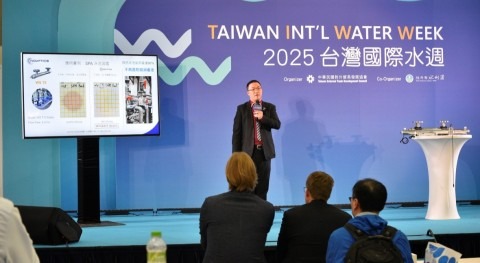The World Economic Forum, in partnership with McKinsey & Company, has released a major new report, “Water Futures: Mobilizing Multi-Stakeholder Action for Resilience,” outlining a systems-based strategy to address the world’s deepening water crisis. As climate change accelerates and global demand intensifies, the report presents a clear call to action: governments, businesses, and civil society must come together now to secure the future of water.
The report is released at a time when more than 4 billion people experience severe water scarcity for at least part of the year, and water-related disasters account for 70% of all deaths caused by natural hazards. The economic stakes are equally high. Water is essential to 60% of global GDP, and risks to water security increasingly threaten industries such as manufacturing, food and agriculture, and materials production.
The white paper, developed through collaboration with nearly 60 partner organizations, argues that the global water cycle is out of balance—and that existing governance structures and policy frameworks are not evolving fast enough to respond. It advocates for a shift from fragmented approaches to a systemic, collaborative model focused on long-term resilience. At the core of this transformation is a renewed understanding of water as a shared resource and a foundational element of sustainable development.
The report defines water resilience as a system’s ability to anticipate, absorb, and recover from disruptions in a timely, fair, and efficient manner. It outlines five critical pathways to guide collective action: holistic water valuation, fit-for-purpose finance, sustained basin-level partnerships, adaptive water governance, and a policy-innovation nexus. Together, these pathways offer a framework for aligning public and private efforts to protect water resources at both local and ecosystem-wide levels.
Water is essential to 60% of global GDP, and risks to water security increasingly threaten industries such as manufacturing, food and agriculture, and materials production
Valuing water more accurately is key to this shift. The report emphasizes the need to reflect the full ecological, social, and economic value of water to drive better incentives for conservation, reuse, and circular systems. Financing mechanisms must also be tailored to support innovation and scale, particularly in developing sustainable, net-zero, and energy-neutral water infrastructure.
Collaboration across entire water basins is also highlighted as essential for addressing water challenges that cut across regions, sectors, and political boundaries. Such partnerships enable a holistic approach that accounts for both green and blue water sources, ecosystem health, and the interdependence of communities.
Importantly, the report draws on momentum created by the Global Commission on the Economics of Water (GCEW), which in 2024 released a groundbreaking report framing the hydrological cycle as a global common good. The Forum’s new publication builds on those insights, seeking to turn vision into action by equipping stakeholders with tools, examples, and strategic direction.
Data presented in the report underscores the scale of the challenge. More than 700 million people now live in regions experiencing increased precipitation intensity, while another 160 million live in areas that have become significantly drier. These shifts have profound implications for food systems, infrastructure, and public health—and demand new approaches to both risk management and long-term planning.
The report also acknowledges the gap between growing awareness of water’s importance and the slow pace of regulatory reform. While progress is being made in areas such as sustainability reporting and regional water strategies, the paper emphasizes that much more must be done to align policy with innovation and to create the conditions for systemic change.
Despite the urgency of the situation, the tone of the report is not one of despair, but of possibility. It presents water resilience not only as a critical necessity, but also as an opportunity for innovation, investment, and shared value creation. By working together across sectors and borders, stakeholders can reshape the global water future—ensuring safe, sustainable, and equitable access to water for generations to come.


















